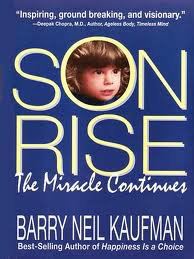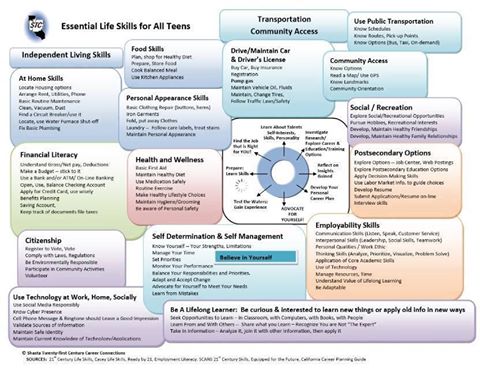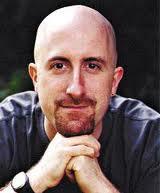 (This blog originally ran on July 4, 2012 — Independence Day)
(This blog originally ran on July 4, 2012 — Independence Day)
“Revolution was effected before the war commenced. The Revolution was in the minds and hearts of the people . . . . This radical change in the principles, opinions, sentiments, and affections of the people was the real American Revolution.” John Adams, 1818
Independence. It’s a loaded word in the autism community. The word “autism” was coined because the first “from birth” cases that Leo Kanner encountered in the ’40s appeared to be so self-contained that they had little to no knowledge of, or interaction with, others. A sort of “independence gone wild,” if you will. (We now know from people who have recovered from severe autism that, frequently, those beings who seem to be so very unconcerned with anything outside a very narrow range of focus are really quite aware of everything that is going on around them.)
But I think if you say the word “independence” to an autism parent and ask for his or her first association, you will find a constant nagging question: Will my child ever be able to live an independent life? Until recently, the average parent used to be able to assume that the average child would grow up, become an adult, move out, get a job, and establish a life — maybe even a family — of his or her own.
That life requires myriad skills that most of us took pretty much for granted when we were growing up, skills we may not even know we possess. Sure, most of us knew one or two people for whom it was less likely to work that way — people with Down syndrome, or severe cerebral palsy perhaps — but, for the most part, eventual independence was assumed. And while we have made progress in some areas (the Americans with Disabilities Act has helped to make it much more likely that people with severe disabilities will be able to live independent, or at least more independent, lives), in other ways it has become much less likely that any individual child will grow up to have the kind of life we envision for them.
In the United States today, nearly 50% of all children are living with chronic illness. Approximately 1 in 88 12-year-olds have an autism diagnosis (editor’s note: This blog originally ran in 2012; the current prevalence number for 12-year-olds is 1 in 68, a nearly 30% rise in two years), 1 in 29 boys in New Jersey. Think of that. More than three percent of the 12-year-old boys in New Jersey are on the autism spectrum!
Another nine percent of children ages 3-17 have ADHD. My daughter has ADHD, and I’ve looked up the stats on what growing up with ADHD is like: thirty-five percent drop out of high school; 30% fail at least one year of school; teens with ADHD have four times as many car wrecks; and depression is a major problem in teens with ADHD. Needless to say, those statistics are more than a little frightening for a loving parent.
Some would say that the very best thing we can hope for, and achieve, would be universal “acceptance” of our kids’ diversity. We want our children to be accepted and celebrated as the wonderful beings they are — “quirky” wiring and all. But . . . the ultimate goal of a parent should be to prepare your children so well for life that they can live life well without your help (note: this does not mean that they should or will live life without your help, only that they are able to do so), because, when it comes down to it, nobody gets out alive.
We’re all going to die, some of us sooner than others. (If there’s any truth to the older mother/older father correlations, then a higher percentage of parents of children with autism will be in the “sooner” category.) As a parent, you’ve got to be always thinking of ways to increase the odds that your child is going to be able to get by without you. That could mean advocating for greater resources for disabled adults or establishing a special-needs trust. Or it could mean intense biomedical treatments to increase a child’s ability to function in the world. Or it could mean intense training to help your child adapt to his or her disabilities. All are loving ways to do the job of a parent and care for your child.
 We all know of a number of wonderful people who have adapted so well to their disabilities that they have amazing lives, Christopher Reeve, Stephen Hawking, Temple Grandin, and Ari Ne’eman among them. Certainly, they have achieved everything their parents could have wanted for them. But what if your child is not among the lucky few to be able to adapt that well?
We all know of a number of wonderful people who have adapted so well to their disabilities that they have amazing lives, Christopher Reeve, Stephen Hawking, Temple Grandin, and Ari Ne’eman among them. Certainly, they have achieved everything their parents could have wanted for them. But what if your child is not among the lucky few to be able to adapt that well?
I’m afraid sometimes that my brilliant and beautiful daughter with ADHD is not going to be one of the ones that can do it. We’re at a point where, if she is to succeed, I’m probably going to have to get accommodations made for her. But I’ll be honest with you . . . What I’d really like to see? A complete “cure.” In her case, that would probably require some pretty intense biomed.
I’d like for my daughter to be able to organize herself, if not with ease, then at least with the grace of the average 13-year-old. I’d like for her to be able to copy from boards and write her assignments in reasonable time frames. I’d like for her to be able to take cogent and legible notes. I’d like for her to remember to wash, remember her lunch, make sure she has her keys, her glasses, and her bus pass. I’d like her to remember to hand in the assignment she worked on last night. I’d like to be able to give her chores to do that will actually get done without constant nagging and/or threats. I’d like for this brilliant writer to never again be in danger of failing English. All of these things would make her life (and mine, by extension) so much easier.
Don’t get me wrong. I don’t need these things to “accept” my daughter — I want them for her. I love my daughter exactly as she is, but, because I love her so much, I want to help her live the interesting and exciting adult life she dreams of. As an adult, I know how difficult it can be to achieve that. She’s a long way from having the skills she will need to thrive.
Consider the child with severe autism, whose chances of living an independent life are so much smaller than my daughter’s. How much more would his or her parent like to see the illness go away? (And, yes, we at TMR believe that autism is a complex medical illness that results from toxic exposures, because we have all seen the way children improve when those exposures are minimized.) All the gastrointestinal problems, all the mitochondria problems, all the social issues, all the speech issues, all the food allergies, all the teasing, all the possibilities for abuse, how wonderful would it be to have all that melt away and only have the child left shining through — free to be everything the child wishes to be?
And yet there are those who would fault a parent for wanting that for their child. Some say that their children with autism would not be “the same” without autism, and they like them exactly the way they are. But no one who grows up — no one who develops — stays “the same.” To me, that’s comparable to saying, “I don’t want my child to ever grow up because his bottle is such a big part of his life that he wouldn’t be him without it.”
While at the AutismOne Conference, I got the chance to do something I’ve wanted to do since 1975. I met Raun Kaufman. For those of you who don’t know, Raun is the son of Barry Neil and Samahria Lyte Kaufman, and is the subject of the book Son-Rise. I was 14 years old in 1975, when unlike today autism was not a household word. Yet I had read every book I could find on the subject (yes, that includes Bruno Bettelheim *shudder*). Nothing I had read previously had prepared me for Son-Rise.
Bears and Suzi (as Samahria was known then) had done the impossible: They had taken a child that the “experts” had told them had an IQ of 30, and would never be capable of the most basic self-care, to the point where he was at age-level or better in almost all areas.  It took two and a half years of intensive work in a program that Samahria designed based on her observations of Raun. Their work was rooted in two things: radical acceptance of Raun exactly the way he was, and radical non-acceptance of the pronouncements of the “experts.”
It took two and a half years of intensive work in a program that Samahria designed based on her observations of Raun. Their work was rooted in two things: radical acceptance of Raun exactly the way he was, and radical non-acceptance of the pronouncements of the “experts.”
As a presenter for the Son-Rise program at AutismOne, Raun described the program’s beginnings. He talked about how his parents had a child that was diagnosed with autism and were given a huge laundry list of basic skills that their child “would never be able to do.” Then he said, “As some of you already know, that child was me.”
There was an audible gasp of “Oh!” from the audience, for it was clear to everyone in the room that at least one case of autism had been “cured.” The man in the front of the room, giving a humorous and dynamic presentation, bore not a trace of autism.
Of course, not everyone is going to be able to achieve total cure. That’s a fact and we all know it, but does that mean that no one should try? Not everyone achieves total cure of cancer, either, but does that mean that we should give up on the approximately 290,000 women who will be diagnosed with breast cancer this year? My son’s pre-K teacher had breast cancer last year; his kindergarten teacher has it now. My only sister had breast cancer approximately sixteen years and is alive today to tell the story. I, for one, am extremely glad that cures are attempted, even if my own approach might be somewhat different from the conventional ones.
In my opinion, it all comes down to this, the prayer that’s helped me through a hell of a lot:
God grant me the serenity to accept the things I cannot change,
The courage to change the things that I can,
And the wisdom to know the difference.
It may not be easy (oh, hell, it might be incredibly difficult!), but I find, when you focus on love, the serenity, courage, and wisdom are all things that can be found within.
Guided by our love for our children, we will do what we can to help them declare their independence!
~ Professor
For more blogs by the Professor, please click here.




















Am I the only person who has had a negative OPTION experience? Option was my first run too when John was 3. Having read Sonrise in 1976 as part of a class project I was working on about how families deal with having a disabled child. Back then in Mississippi there was one family with a child with autism and they happened to live in a near by town. This became my mission, to get educated on autism. I read everything, which back then was only a hand full of books most all negative ( think the Noah series) and hopeless. I was hooked on Option and just knew KNEW I had all the answers. Naturally I was shot down in classes later on in college with my nonsense.
Fast-forward to 1994 and I watch my son slip into autism. What do I do…set up a Sonrise program and contact Option. I was invited to come on up to the first Start Up program. I made it to the 3rd one. While there I met parents with my story, something I had been working on for over a year…finding kids who changed after vaccines. I made some wonderful contacts. We asked about diet, “We don’t talk about that here.” was the response, “That’s not part of our program” okay, I understand that. So give us some real concrete direction…But two afternoons of out learning time was taken up with long fund raising help Option grow sale a thons…not about helping our children, but high pressure to give them more money. Hey I had put this trip on a credit card, more money was not something I had. BUT I still left feeling better, yes, it was simple, to recover John all I had to do was build his special room, check, get a team of people on board to work with him, check, and keep him in there until he recovered. Want extra help? Call us and for a fee we will talk to you..So when John grew worse, not better, I called. I send them money to help keep the doors open even though I was in debt out my eye balls. Then I made a call that forever changed my life. As I talked to my counselor she told me John’s lack of progress was my fault. That I did not except John as he was and he felt it. This cut and hurt as deeply as when his doctor told me to put him in a home and get on with my life. One thing I knew for certain, John failure to progress was NOT my fault in anyway. That day ended my two decade long love affair with Sonrise…
One of the people I had been working with at Option left and started up his own program and he contacted me. I was assured that no, I was not to blame for John’s lack of progress, in fact he gave me great ideas and connections with other parents who were making progress. In talking with former Option parents I learned about other program ideas as well as the newly talked about concepts in biomed. Soon John was making progress. I still think of the year we spend in a room with no sun…oh the lack of vitamin D was bad enough!
I tell parents who ask me about Option if it’s worth the money. I say if you are in a dark mental place about excepting your child or the situation, go for it. But if you don’t need therapy…spend your money on a DAN! first and get your child healthy, then see what you need.
Yes our children do need to be in accepting loving homes first and fore most…but that is NOT ENOUGH! It will not detox your child, it will not chelate out heavy metals, it will not heal a leaky gut. Most of all being told you are at fault for your child slipping into autism and you are the reason they are not responding is criminally cruel. I hope and pray things are different at Option now than they were in 1996…I still respect the idea and concept and yes live with an open heart and acceptance of both my sons…but I also know you have to have more going on. Why did Raun recover…who knows. Maybe he was like some of the kids I see who make almost magical progress with little intervention. Maybe their brains recover a shock to the body better…I don’t know. But I do know this, if Sonrise was enough, my son would be in college today rather than in Depends…..and I would be recovering kids left and right…
We started our Son Rise program almost a year ago, and attended the startup program. They were very open to biomed and dietary changes, and diet was definitely a topic of discussion. There’s a large section on that in Raun’s book about diet and biomed Maybe they’ve changed a little since you attended. I didn’t find them “anti-biomed” at all. Quite the opposite. I’m sorry you had a bad experience with it.
I think the program has been wonderful for us and our son. He’s made great progress. I do agree, they ask for a lot, financially, from parents, but like most things it’s not about the money it’s how you spend the time. You don’t have to do buy *everything.* ABA is expensive, too. There are lots and lots of kids that recover or make significant progress with Son Rise. Biomed is a piece. Therapy is a piece.
Just to be clear, I’m not discounting or diminishing your experience, it sounds awful. When we went in 2014 “blaming the parent” was the farthest thing from what we experienced. Almost the exact opposite.
Fabulous article. I have sent this to dozens already today, friends and fellow moms, former teachers and therapists and consultants. Our strength and wisdom and courage come from love. And we are to love and accept our kids just as they are, but never leave them there! We dont leave people with injuries untreated, sickness untreated, addictions untreated, ….
Love your writing and look forward to more!
I wonder if the whole autism acceptance crowd that is so insistent that autism is such an integral part of these children that they wouldn’t change for the world because one’s brain=one’s mind/soul will stick to their philosophical guns when they or a loved one descend into dementia from Alzheimer’s, Parkinson’s, prion disease, Lyme’s, Pick’s, or the many other neurodegenerative diseases that plague us.
My once verbal, connected, joyful son’s descent into ‘autism’ was no less terrifying than watching a beloved grandparent slide into dementia. His autistic condition is no more ‘who he is’ than my friend’s grandmother’s late stage Alzheimer’s was her. (The comparison between Alzheimer’s and autism is not far off - it looks like microglial activation is indicated in both).
http://www.neuro.jhmi.edu/neuroimmunopath/autism.htm
The anti-cure philosophy is a cop out, and even worse, let’s those responsible off the hook and allows these forces to continue to destroy children. Once I recover my son, I’m going after whoever and whatever did this him.
Thanks for your comments, Foxylibrarian. Are you new here at TMR? I don’t think I’ve encountered you yet.
I think your comparison to Alzheimer’s is very apt. For many, many people autism is a regressive condition quite similar in some ways in its effects to Alzheimer’s. I think most of the people who hate the thought of “cure” are people who have not seen a similar regression. Some even think in terms of “real” autism vs. (fake?) other autism, noting that the original Kanner cases were supposed to have been affected from birth. However, we don’t know if there was an environmental insult PRIOR to birth (or even at birth, like the hep B shot) that may have caused the condition. Dan Olmstead and Mark Blaxill make a pretty good case for prenatal mercury exposure in the original cases of autism that Kanner described. In any event, there is no denying that there are many areas of life that are significantly difficult for a person with full-blown autism. I don’t know a parent who wouldn’t feel the desire to make life easier for their child.
Son Rise folks (I and the others I’ve met, anyways) aren’t an “anti-cure” crowd, nor do we subscribe to the notion that “everyone’s on the spectrum a little bit.” It’s about understanding your child better, forming a better connection to them, and meeting them where they are. That’s how you help them most effectively. You can’t skip developmental steps, but a LOT of therapies tend to. There’s a lot of misunderstanding about Son Rise. I would highly recommend you get Raun’s book (Autism Breakthrough) or DVD, or at least check out the website. No matter what therapies you choose, there are a lot of great takeaways from Son Rise you can apply.
I think Son Rise proponents (speaking for myself) would indeed use the same approach if a loved one had Alzheimers, Cancer, Lyme or anything else.
Awesome post, Professor! I’m looking forward to going to a Son Rise start up in August.
Oh, I can’t WAIT to hear your reaction, Guilded. I think you’re gonna love it. 🙂
I am so glad I checked out the blog today, this was exactly what I needed to read! Thank you Professor, once again a beautiful piece! Do you do son-rise?? Have been seriously considering it for us. Happy 4th!!!! Even if we never achieve the typical kind of independence for our kids, I can honestly say I’m so very glad I received the independence of mind, and heart I needed to help him in every way possible against stacked odds.
I don’t have a child with autism, so I never did the Son-Rise program, but I did do an “Empowering Yourself” workshop back in 1993. I got to meet Bears and Samahria who have been heroes of mine since 1975. A number of the Thinking Moms HAVE done Son-Rise programs and it seems to have been life-changing across the board. I think virtually everyone would do well to learn their dialog process. It’s helped me through some VERY difficult times.
Thanks Professor - great read. I will be sure to share it. Happy 4th!
Thanks, Michelle! Same to you.